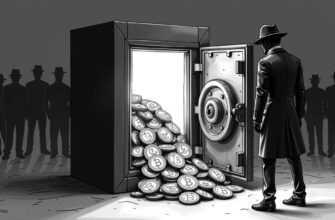Blockchain in Real Estate: How Blockchain Technology can Transform the Property Sector. Insights by special guest contributor Rt Hon Grant Shapps MP, Chair of the UK Parliamentary Blockchain Committee (APPG Blockchain) and former housing minister for the UK Government.
Why is buying or selling a home so incredibly stressful? According to psychiatrists, moving house ranks as life’s third most stressful activity. It’s right up there after losing a loved one and getting divorced. And, it turns out, you don’t even need to purchase a home to feel the stress. Just renting or letting a property can also release lots of anxiety-inducing serotonin.
When I became Housing Minister back in 2010 I hoped I might find a way to lower house moving stress.
So, I ordered a review of home buying and selling, renting and letting. Was there, I asked, a better/less stressful way for our house moving system to work? Perhaps with the benefit of international comparison from Scotland to Europe and beyond, we would find somewhere on the globe where moving home had been destressed.
And the result?
Well, it turns out that every system has its pros and cons. You can sign a contract up front (as the French do) and then go through the process of people wriggling out once they’ve had a survey and found the dry rot. Or, you can have an offer accepted (as we do in England) only to experience the delights of gazumping, even after you’ve spent significant cash on professional fees.
The bottom line was that there was no perfect system. And, I couldn’t say with any certainty that a better process actually existed. Because regardless of where in the world you’re reading this – the truth is that every house moving system so far invented has its drawbacks.
However, today I realise that I was probably looking in the wrong direction all along.
You see, the real barrier to smooth property transaction is in fact ‘trust’. Even though moving is in theory just a transaction between a buyer and seller (or renter and landlord), in reality, numerous parties are involved. And, for a transaction to proceed smoothly, each must have confidence in the next.
Of course, if there is one thing that the blockchain is good at, it is acting as a trusted third party.
As Chair of the All-Party Parliamentary Group on the Blockchain, I’m frequently asked by my fellow MPs to ‘just explain this blockchain thing to me’. As anyone who has ever attempted to explain Distributed Ledger Technology in an elevator pitch will testify, a compact answer can be a challenge. But I usually use a version of the following…
Let’s say I owe you £100. I ask for your bank details and I make the transfer. I know it’s sent because my banking app tells me so. You know you’ve received it through your bank. Simple enough. Except that to make that transfer, both you and I have had to rely on two large banking institutions, with all their overheads and bureaucracy, just to satisfy ourselves that the transaction really has taken place.
So now imagine a world where we don’t need the involvement of either of our expensive banks. Where thousands of computers belonging to people we don’t need to know guarantee that the payment has been received. This anonymous network becomes our single trusted third-party. And it has the potential to save us both a lot of time and money in the future.
By this point, I’m hoping to get a nodding head and if I do then I’ll complete the explanation. Now can you imagine if we didn’t require so many other trusted third-parties, like accountants, lawyers, conveyancers and so on?
At this point and with some folk, the penny starts to drop. And if it does, then I might throw in a brief word about Smart Contracts and some of the incredible work the All Party Group is viewing from governments, corporates and online communities around the world.
Which brings me back to that property question I posed myself as a Minister all those years ago.
Remember how I couldn’t find a conventional answer to speeding up and de-stressing the property buying and selling, renting and letting sectors? Well, now I think I see a solution. And it involves blockchain technology.
If the key to making a task more efficient is deploying more effective third-parties, then I cannot think of a better place to start than in the property world. From estate agents joining up buyers and sellers, through to conveyancing, searches, land registry and finance – this is a marketplace which has defied consumer-orientated improvement for a very long time.
Yet when I went looking for a solution back then, I came up empty-handed. But now I believe that was because the technology to improve the house moving process simply didn’t exist. Thanks to the Distributed Public Ledger, today it does.
I suspect it won’t be long before the blockchain is bringing massive changes to the property sector. And it will be removing a lot of time, stress and angst in the process.
Rt Hon Grant Shapps MP is the Chair of the UK Parliamentary Blockchain Committee (APPG Blockchain) and former housing minister for the UK Government. Grant is also the chair of OpenBrix Governance committee.
If you liked this article on Blockchain in real estate, check out these posts:







